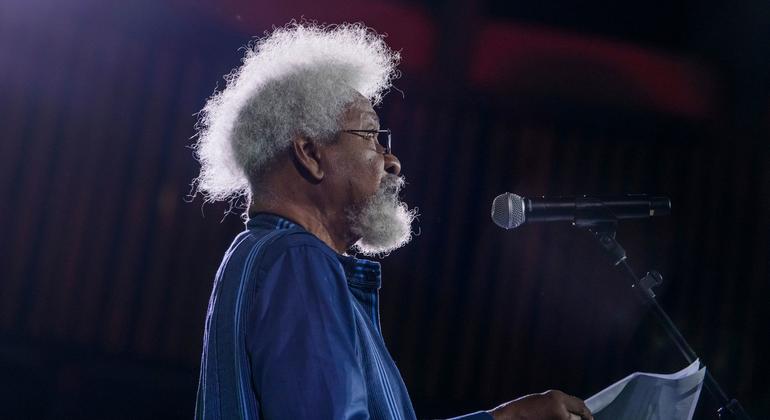Wole Soyinka, a renowned Nigerian Nobel Laureate for Literature, has been a vocal advocate for human rights, peace, and combating hate speech. Throughout his career, Soyinka has used his powerful words to address important issues such as online hate speech, religious extremism, and the importance of human rights.
In 2008, Soyinka addressed a lecture series marking the 60th anniversary of the adoption of the Universal Declaration of Human Rights. During his speech, he emphasized the universal nature of human rights and rejected the notion that freedom of expression is a luxury only enjoyed in the West. Soyinka highlighted the historic struggles of individuals and communities around the world for dignity, equality, and access to basic necessities like shelter, nourishment, and healthcare.
In 1993, Soyinka spoke at the World Conference on Human Rights as a special guest of the UN Secretary-General, where he reiterated the importance of freedom of expression and human rights. His passionate advocacy for these fundamental principles caught the attention of the international community, leading to his appointment as one of the first UN Goodwill Ambassadors in 1999.
As a Goodwill Ambassador, Soyinka played a key role in promoting awareness of the World Conference Against Racism in 2001. The conference aimed to combat racism, xenophobia, antisemitism, and other forms of intolerance on a global scale. Soyinka’s involvement in this important initiative further solidified his reputation as a champion for human rights and social justice.
Throughout his career, Soyinka has made multiple appearances at the UN Headquarters, participating in debates and discussions on various topics related to peace, tolerance, and cultural understanding. In 2012, he spoke at a debate on the culture of peace, where he addressed the issue of religious extremism and intolerance in the context of the online distribution of the anti-Islamic film “Innocence of Muslims.”
During the debate, Soyinka emphasized the futility of trying to prevent insults to religion from spreading through technology. He urged for a more proactive approach to educating the ignorant and promoting dialogue and understanding among different cultures and religions. Soyinka’s insightful remarks resonated with the audience and highlighted the importance of using technology for positive social change.
In addition to his advocacy work at the UN, Soyinka has also been involved in initiatives with organizations like UNESCO, focusing on promoting peace and dialogue among cultures. He has consistently spoken out against religious extremism and violence, urging people to respond to hate and intolerance with reason and compassion rather than with further violence.
Soyinka’s commitment to human rights and social justice has earned him respect and admiration from people around the world. His stern warnings to world leaders about the dangers of religious extremism and the need for dialogue and understanding have made a lasting impact on global conversations about peace and tolerance.
As we reflect on Soyinka’s legacy this #ThrowbackThursday, let us remember his powerful words and unwavering dedication to promoting human rights, combating hate speech, and fostering a more peaceful and inclusive world for all.









